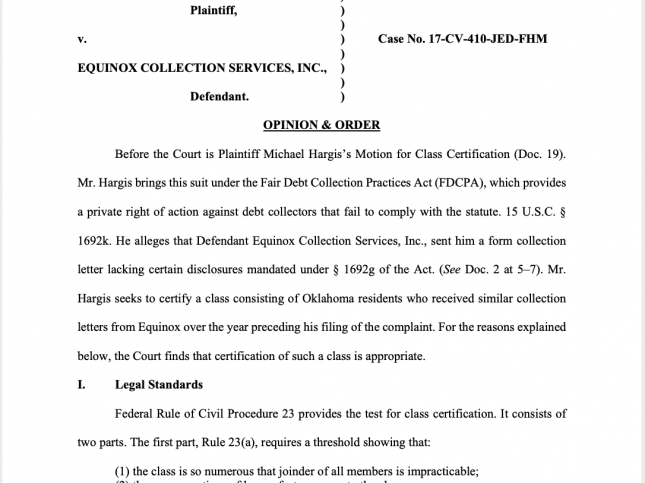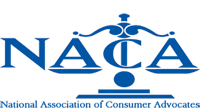FTC Continues Vigorous Enforcement of FDCPA
Over the last year, the Federal Trade Commission has continued vigorously enforcing the Fair Debt Collection Practices Act by bringing or resolving seven debt collection cases, according to the agency’s annual letter to the Consumer Financial Protection Bureau. The FTC shares federal jurisdiction for enforcing the act with the CFPB.
Besides enforcement, the FTC’s debt collection program includes education and public outreach, as well as research and policy initiatives.
“The FTC remains vigilant in taking action against debt collectors who use illegal methods when collecting from consumers,” said Charles Harwood, Acting Director of the agency’s Bureau of Consumer Protection.
Under the Dodd-Frank Wall Street Reform and Consumer Protection Act, the CFPB is required to submit annual reports to Congress on the Fair Debt Collection Practices Act, a task previously assigned to the FTC. The CFPB’s second report is due on March 20, 2013, and to assist the CFPB in preparing its report, the FTC’s letter summarizes its own recent work on debt collection issues.
In the last 12 months, the FTC brought or resolved cases against four operations that allegedly used deceptive or abusive tactics to intimidate consumers, and against three so-called “phantom debt” collectors who allegedly attempted to collect on non-existent debts or debts not owed to them.
- Defendants in the Forensic Case Management Services, Inc. case, who did business as Rumson, Bolling & Associates, settled charges with an order banning them from future debt collection activity. They allegedly threatened bodily harm to consumers, desecration of their deceased family members, and death to their pets if they did not pay. They also allegedly retained more fees from their clients than they had agreed to take. The Commission will collect more than $1.1 million.
- In the Luebke Baker case, the FTC settled with defendants that allegedly masked their identities using caller ID, falsely told consumers that magazine debts are exempt from statutes of limitations, and illegally threatened to garnish wages, among other violations of federal law.
- In the Goldman Schwartz case, the defendants’ allegedly illegal behavior included using insults, lies, false threats of imprisonment, and false claims of affiliations with attorneys and law firms, as well as charging unauthorized late fees and attorneys’ fees. Litigation continues.
- In AMG Services, Inc., the FTC alleged that a payday lender collecting on its own behalf charged inflated fees and made false threats that it would have consumers arrested, prosecuted, or imprisoned for failing to pay. Litigation continues.
The FTC’s three “phantom debt” cases included American Credit Crunchers, Pro Credit Group, LLC, and Broadway Global Master. In each case, the defendants allegedly worked closely with overseas call centers; engaged in a scheme to defraud consumers, often for payday loans; and collected money that either wasn’t owed, or was never applied to the consumers’ actual debts. The American Credit Crunchers defendants were required to turn over approximately $170,000. Litigation in the other two cases continues.
In other enforcement activities, the FTC joined the Consumer Financial Protection Bureau and the Department of Justice in filing an amicus brief in the U.S. Supreme Court that argues that consumers who file good-faith lawsuits against debt collectors for alleged violations of the Fair Debt Collection Practices Act are not required to pay prevailing defendants’ litigation costs.
The FTC also closed an investigation of debt collector RJM Acquisitions, which was collecting on debt that was too old to be legally enforceable. The agency closed the investigation after the company began providing a disclosure to its collection letters so consumers would not take away the impression that they could be sued on the debt.
The letter to the CFPB also references the FTC’s consumer education work in debt collection, including launching two consumer-oriented websites in English and Spanish: consumer.ftc.gov and consumer.gov. This work also includes regular meetings with legal service providers such as the National Association for Consumer Advocates.
The FTC’s research and policy activities include the agency’s recently announced debt buyer study, The Structure and Practices of the Debt Buying Industry.




